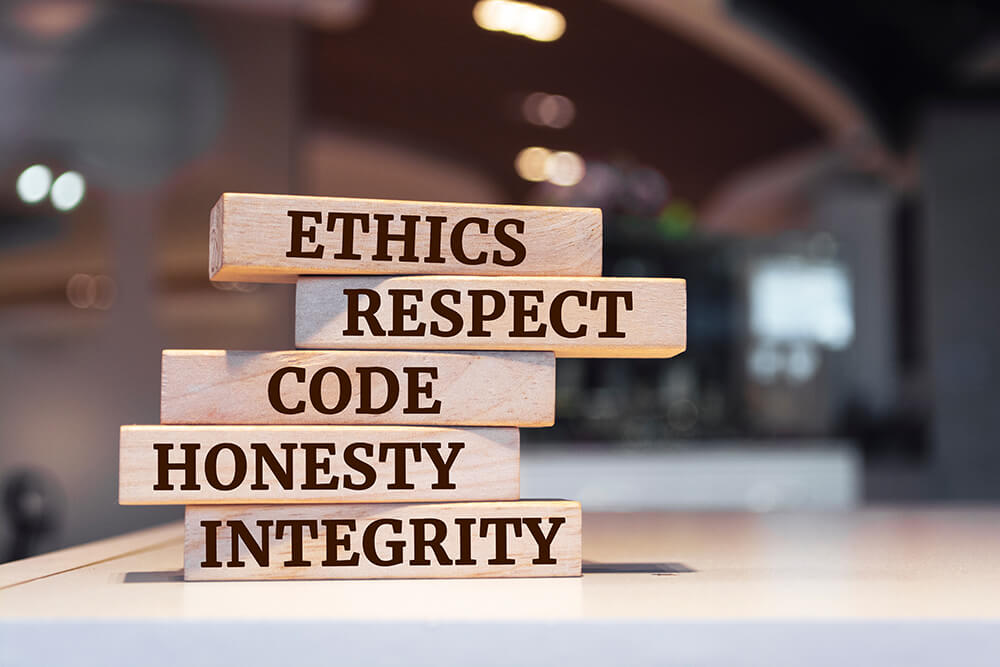- Messages
- 37
- Reaction score
- 26
- Points
- 28
Good Conduct


Good conduct and manners can be defined as behaving well with courtesy and politeness to show correct public behavior to the people living in society. Examples of good conduct are:
Walk at all times.
Keep hands/feet to yourself.
Be kind to others.
Use manners.
Be a good listener.
Allow others to learn.
Respect others/property.
Complete assigned.
Why is the good conduct of an individual important?
Good conducts and manners help us in getting respect and dignity in society whereas bad manners defame us. Good conducts and manners help us to develop good habits which improve the physical, mental, spiritual, and social well-being of a person, thus overall development of society.
Good manners and ethics are what every individual seeks in every other individual. These values are the setting grounds for a good character that a society seeks a person to be acquired and cultivated with. Ethics, on board the concept of good and bad conduct, is a branch of philosophy that deals with the issue of morality and the rules of behavior. It becomes of great importance for us as human beings to set the principles of right conduct, commonly used by the name ‘ethics’ in the modern day as this help to analyze the problems that come our way and also aids in doing away with the odds by finding suitable solutions for the problems. These are the basic principles or codes of conduct that govern our moral transactions with the rest of the world. The origin of ethics and good and bad conduct is not the new one, but several religions and philosophers have made their contributions over centuries.
What makes an individual’s conduct right?
Ethical people follow basic principles of right and wrong. The Golden Rule. Treat others the way you want to be treated. This time-honored principle applies today even more than in the past because, as a society, we have lost our moral compass. Right conduct, the fourth element, means that a person's actions must try to be without ego or thought for the self, and they must be good and moral to defeat evil. Three main factors influence individual conduct which are values, morals, and personality. Values are an individual's judgment or standard of behavior.
Individual conduct- a better society
Society does not exist independently without individuals. The individual lives and acts within society but society is nothing, despite the combination of individuals for cooperative effort. On the other hand, society exists to serve individuals―not the other way around. Human life and society almost go together. A single person can contribute to the common good by doing little things such as donating to those less fortunate as well. Hence a person needs to improvise his ethics, manners, and conduct to make a good society. An easy start can be replying to someone politely and respecting their opinion without humiliating other people or imposing your opinion on them. The next level can be avoiding physical feuds and trying to solve the issue verbally, keeping your hands and feet to yourself. Perfect conduct would be showing generosity, kindness, and spreading love. People should avoid using any word or action that could hurt someone, even the worst of people. Considering someone’s efforts and appreciating them for their little achievements, giving someone space in new things and accepting their indifferences can change the world but moreover a single life!
There are masses of people out in the world who are overwhelmed with only a simple comment such as “you are beautiful” or even simpler “have a good day”. For people who are disappointed by life and the people around them, our one single comment or word for them can change their view and life either for good or even worst.
Examples that had made a major difference:
- Nelson Mandela (1918–2013) Campaigned for justice and freedom in his country South Africa. Mandela spent 27 years in jail for his opposition to apartheid. On release, he healed the wounds of apartheid through his magnanimous attitude to his former political enemies.
- Martin Luther King (1929–1968) Inspiring leader of the non-violent civil rights movement. Inspired millions of people, black and white, to aspire for a more equal society.
- Muhammad Ali (1942–2016) Champion boxer and a great character. Refused to fight in the Vietnam war and became a champion of civil rights and African interests. When asked how he would like to be remembered, Ali said: “As a man who tried to unite all humankind through faith and love.”